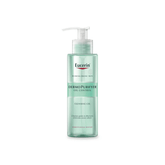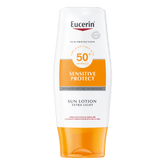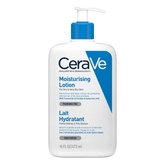How to Know Your Skin Type
Did you know that understanding your skin type is the key to achieving a flawless and radiant complexion?
Determining whether your skin is oily, dry, combination, normal, or sensitive is crucial for tailoring a skincare routine that addresses your specific needs and concerns. With the right knowledge, you can choose the perfect skincare products and achieve optimal results.
Importance of Skin Type Identification
Identifying your skin type is crucial for understanding the characteristics and needs of your skin. It enables you to choose the right skincare products and tailor your skincare routine to address specific concerns effectively.
The Role of the Skin Barrier in Determining Skin Type
The skin barrier plays a vital role in determining your skin type. It acts as a protective shield between your skin and the external environment, safeguarding it against harmful particles and pollutants. The composition and balance of natural oils within your skin barrier affect its behavior and reaction to different skincare products.
Why One-Size-Fits-All Skincare Doesn't Work
One-size-fits-all skincare routines may not be effective because each skin type requires specific care and targeted ingredients to address its unique needs and concerns. Using the wrong products may lead to adverse reactions or ineffective results. By identifying your skin type, you can customize your skincare routine to provide optimal care for your skin.
Characteristics of the Five Main Skin Types
Understanding the characteristics of different skin types is crucial for effective skincare. Here are the five main skin types and their key features:
- Oily skin: Oily skin is characterized by excessive sebum production, giving the skin a shiny appearance. It is prone to issues like acne blemishes and enlarged pores.
- Dry skin: Dry skin lacks natural oils, leading to flakiness, roughness, and tightness. It may also be prone to wrinkles and fine lines.
- Combination skin: Combination skin has both oily and dry areas. The T-zone (forehead, nose, and chin) tends to be oily, while the cheeks are either dry or normal.
- Normal skin: Normal skin is well-balanced, neither too oily nor too dry. It has small pores and minimal sensitivity.
- Sensitive skin: Sensitive skin is prone to irritation, redness, and reactions to certain ingredients. It requires gentle and soothing skincare products.
Identifying your skin type will help you choose the right products and address specific skin concerns such as wrinkles, enlarged pores, acne blemishes, and flaky skin.
Essential Steps to Determine Your Type of Skin
Determining your skin type is crucial for creating an effective skincare routine. By understanding your skin's specific needs, you can choose the right products and address any concerns you may have. There are several methods you can use at home to determine your skin type.
The "Watch and Wait" At-Home Skin Assessment
The "watch and wait" method involves observing how your skin behaves after cleansing. Take note of the following characteristics:
- Oily skin appears shiny throughout
- Dry skin feels tight and flaky
- Combination skin shows shine only in the T-zone (forehead, nose, and chin)
- Normal skin feels hydrated and comfortable
By observing these characteristics over a period of time, you can identify your skin type.
Using Blotting Sheets to Reveal Sebum Production Levels
Another method to assess your skin type is by using blotting sheets. Follow these steps:
- Press a blotting sheet against different areas of your face.
- Observe the level of oil absorbed by the sheet:
- Excessive oil absorption indicates oily skin.
- Minimal oil absorption suggests dry skin.
- Moderate absorption points to combination or normal skin.
These simple steps can help you determine your skin type and tailor your skincare routine accordingly.
Implementing these methods at home can provide valuable insights into your skin type and guide you in choosing the right skincare products. Remember that everyone's skin is unique, and it may take some trial and error to find the perfect routine for your specific needs. Stay consistent and adjust your routine as necessary to achieve healthy and glowing skin.
Tailoring Your Skincare Routine to Your Skin Type
Once you determine your skin type, it's important to customize your skincare routine to address its specific needs. For different skin types, here are some tips on how to care for your skin:
- For oily skin, focus on using oil-free and non-comedogenic products that can control shine and reduce pore congestion. Look for ingredients like salicylic acid or tea tree oil, which can help regulate sebum production and prevent acne breakouts.
- If you have dry skin, opt for rich moisturizers that provide intense hydration and replenish the skin's moisture barrier. Look for ingredients like hyaluronic acid or ceramides, which help lock in moisture and soothe flakiness. Gentle cleansers that don't strip the skin of its natural oils are also recommended.
- For those with combination skin, it's important to strike a balance between addressing oily and dry areas. Use targeted products for each zone, such as oil-absorbing cleansers and toners for the T-zone, and moisturizers for the dry areas. Exfoliation can help remove dead skin cells and unclog pores, but be careful not to over-exfoliate.
- Normal skin requires regular cleansing, moisturizing, and sun protection. Use a gentle cleanser to maintain the skin's natural balance and follow up with a lightweight moisturizer. Don't forget to apply sunscreen with at least SPF 30 to protect your skin from harmful UV rays.
- Sensitive skin requires extra care and gentle products. Look for fragrance-free and hypoallergenic skincare products that are formulated with soothing ingredients like aloe vera or chamomile. Avoid harsh exfoliants and opt for mild cleansing methods like using a soft cloth or a gentle cleansing milk.
When you have knowledge of your skin type, it will guide you in choosing the right skincare products and ingredients that cater to your skin's unique requirements. Remember to listen to your skin and adjust your routine as needed.
Consistency is key when it comes to maintaining healthy and glowing skin.
Professional Skin Analysis and When to See a Dermatologist
Benefits of a Skincare Consultation
While at-home methods can help you determine your skin type, it is advisable to consult a dermatologist or skincare professional for a more accurate and personalized analysis of your skin.
A skincare consultation offers several benefits that can guide you towards a successful skincare routine that addresses your specific concerns.
During a professional skin analysis, a dermatologist will conduct a thorough examination of your skin, taking into account factors such as hydration levels, sebum production, pore size, and any visible signs of damage or skin conditions.
This in-depth assessment helps identify your skin concerns and provides valuable insights into your skin type and its unique needs.
Based on the personalized skin assessment, a skincare expert will then recommend suitable skincare products and ingredients tailored to your skin type.
They can help you establish a targeted skincare routine that addresses your specific concerns, whether it is acne, dryness, aging, or sensitivity. By following their recommendations, you can optimize your skincare routine and achieve your desired skin results.
If you have persistent skin issues or are uncertain about your skin type, it is highly recommended to seek professional advice.
Dermatologists possess the expertise to diagnose any underlying skin conditions and prescribe appropriate treatments. They can guide you in selecting the right skincare products and provide expert advice on managing and improving your skin health.















